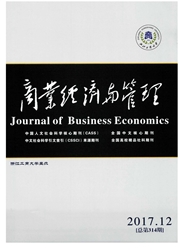

 中文摘要:
中文摘要:
采用问卷调查方式收集了66名领导与其286名下属的配对样本,运用层级回归的方法,探讨了威权领导对员工建言的影响及其作用机制。结果表明,威权领导和员工权力距离都对员工建言存在显著的负向预测效应。另外,员工权力距离还会调节威权领导对员工建言的效应,当员工权力距离较大时,威权领导与员工建言间的关系较弱。最后,员工心理授权部分中介威权领导、员工权力距离对员工建言的影响,完全中介威权领导和员工权力距离的交互项对员工建言的影响。这些研究结果有助于理解中国传统领导行为对员工建言的影响以及影响的中介机制和边界条件,具有重要的理论意义和实践意义。
 英文摘要:
英文摘要:
In contemporary organizations, competitive advantage can come from ideas employees communicate to supervisors for improving processes, products, and services. One approach to study employee communications with supervisors is voice behavior. Particularly many researches reveal that employees are hesitant to express their opinions or voice their views in Chinese context, which was thought to have context - specific reasons. In this research, we consider authoritarian leadership and the individual cultural value orientation of power distance as predictors of voice. In a survey-based study of 286 employees and their supervisors, we found that authoritarian leadership and employee power distance both have significant effects on employee voice, and employee power distance moderated the relationship between authoritarian leadership and employee voice. Employee psychological empowerment fully mediated the contribution of the interaction of authoritarian leadership and employee power distance, and partially mediated the contribution of authoritarian leadership or employee power distance to employee voice. Implications for research and practice are discussed.
 同期刊论文项目
同期刊论文项目
 同项目期刊论文
同项目期刊论文
 The effect of perception of existence of HPWS on employee's organizational commitment: A test of soc
The effect of perception of existence of HPWS on employee's organizational commitment: A test of soc 期刊信息
期刊信息
